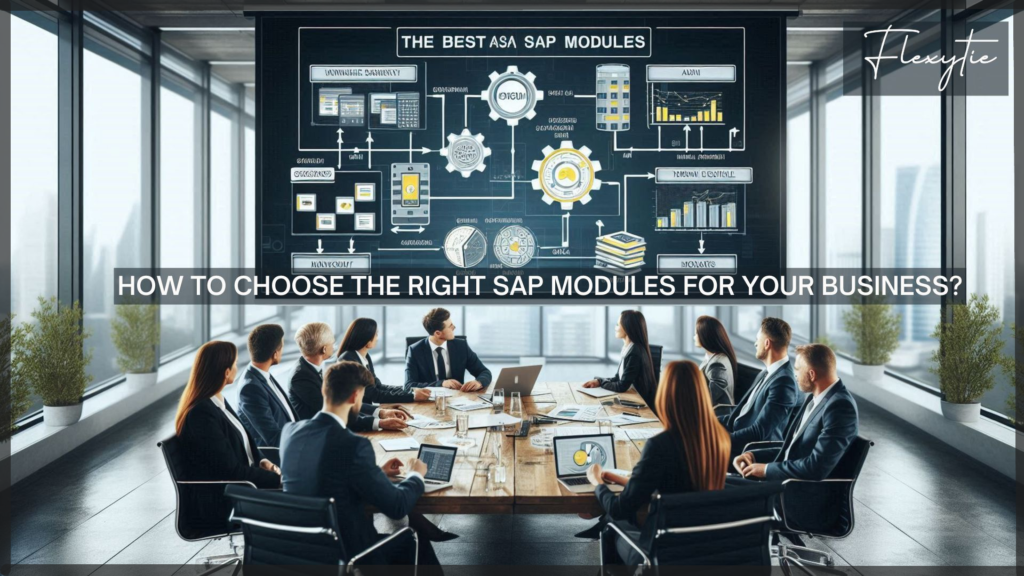Table of Contents Show
- Check Different SAP Modules Available
- Get Expert Consultation and Support
- Consider Your Business Needs and Goals
- Determine Business Processes
- Evaluate the Scalability and Flexibility of Modules
- Go for Industry-Specific SAP Modules
- Consider SAP Implementation and Licensing Budget
- Go for Testing and Piloting before Full Integration
- Final Words
SAP (Systems, Applications, and Products in Data Processing) comes with a full set of modules. These help to deal with various business functions, including human resources, customer relationship management, logistics, finance, etc. It is necessary to choose the most appropriate SAP modules for your business, based on various factors:
Check Different SAP Modules Available
You can find different SAP modules in the market. Each module is designed to support particular business functions, be it Enterprise Resource Planning, Customer Relationship Management, Supply Chain Management, or Human Capital Management. When you understand each of the module functionalities, you can choose one that aligns perfectly with your business type and processes.
Get Expert Consultation and Support
Seek expert consultation from third-party consultants or SAP partners having experience in implementing SAP solutions. They can guide you in choosing modules, implementing strategies, and following best practices customized to your business context.
Consider Your Business Needs and Goals
Identify the particular challenges being faced by your business and the outcomes that you want to achieve via SAP implementation. Whether you wish to streamline financial processes, improve customer service, or boost operational efficiency, choose modules that satisfy your business needs and objectives. It can go a long way to boost your business growth, productivity, and efficiency.
Determine Business Processes
Choose SAP modules according to existing business processes. Map out your current workflows. Determine how your existing business processes would be streamlined or improved by each module. With this alignment, you can ensure tangible benefits from SAP module implementation and minimize disruptions to your business operations.
Evaluate the Scalability and Flexibility of Modules
Your software requirements will grow according to the growth and evolution of your business. Consider the flexibility and scalability of SAP modules while choosing them. Look for modules that can accommodate growth easily and adapt to the changing requirements of your business.
Go for Industry-Specific SAP Modules
SAP offers industry-specific modules. These are tailored to the unique needs of different sectors, including finance, healthcare, retail, and manufacturing. Opt for a specialized module that aligns with your industry type and best practices. It can reduce implementation time significantly and make your module more relevant to your business.
Consider SAP Implementation and Licensing Budget
While choosing SAP modules, consider the total cost of ownership, including implementation costs, licensing fees, and ongoing maintenance expenses. You might need additional investments for some modules in training, hardware, or support services. Your budget should reflect long-term financial commitments and immediate expenses, to ensure the sustainability of your SAP solution over time.
Go for Testing and Piloting before Full Integration
Implement a pilot program with a smaller group. Evaluate the performance of chosen modules in real-world situations. You can easily detect possible issues, collect user feedback, and make the adjustments needed before a full-scale rollout.
Final Words
In this competitive business landscape, choosing the right SAP module can provide your business with the right business edge. The expert SAP consultants of Flexytie can help make the best choice, based on your business requirements, budget, growth scope, and various other factors.

